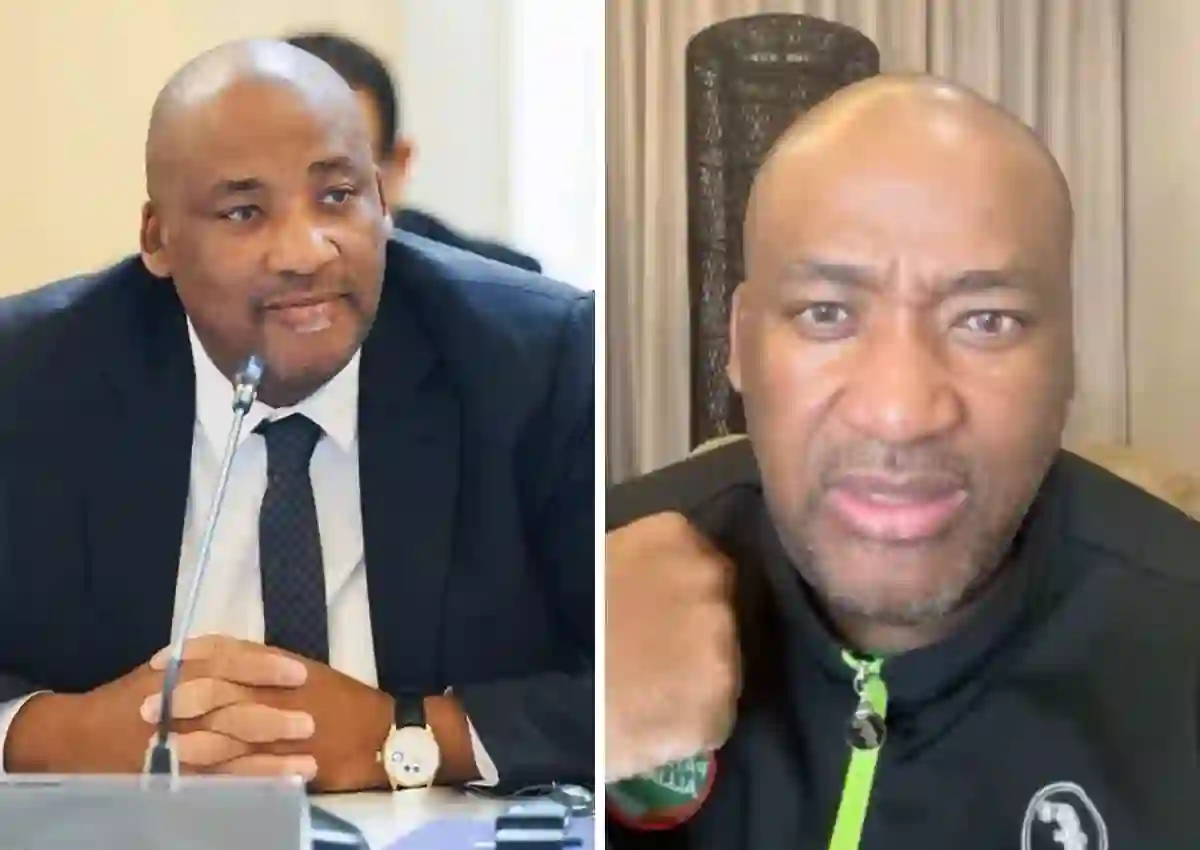What started as an online storm over old social media posts has turned into a political headache for Sport, Arts and Culture Minister Gayton McKenzie.
Over the weekend, screenshots of his past tweets — many containing racial slurs, including the K-word — began circulating widely, sparking outrage across South Africa.
McKenzie, who also leads the Patriotic Alliance, responded with what many are calling a “back-handed apology,” insisting he cannot be guilty of racism while admitting that some of his past comments were offensive and regrettable.
“I Am Not Guilty of Racism”
In his defence, McKenzie pointed to his personal background and relationships.
“I’m the son of a black woman, I have children with a black woman,” he wrote on X (formerly Twitter).
He argued that he has spent his life fighting for equal treatment between black and coloured communities, insisting both groups faced the same struggle during apartheid.
According to McKenzie, coloured people in South Africa still lack the same privileges as black people, and his advocacy for them has been consistent.
He even suggested that some of his older tweets were misunderstood and were, in fact, calling out racism.
Admitting to “Troll” Behaviour
While rejecting the label of “racist,” McKenzie did concede that some of his old posts crossed the line.
“I did tweet some insensitive, stupid, and hurtful things a decade or two ago,” he admitted.
“I was a troll and stupid. I cringe when I see them, and I am truly sorry for that.”
He also stated that he is willing to be investigated over the matter, though many critics say the apology falls short.
Public Reaction: “Sorry, Not Sorry”
Social media users were quick to weigh in — and most weren’t buying McKenzie’s explanation.
Comments under his post accused him of only apologising because he had been caught, with some alleging he deleted old tweets to avoid further scrutiny.
One user compared the backlash to previous high-profile cases of racial slur controversies, pointing out that other public figures have faced severe consequences for similar remarks.
Another insisted that his words were proof of racism and misogyny and called for his removal from public office.
The Bigger Question
McKenzie’s remarks and the fierce online response have reignited debates about accountability, historical language use, and whether public officials can truly separate their past words from their present roles.
For now, he maintains his innocence on racism charges but acknowledges his past mistakes.
Whether that’s enough to keep public trust — or his position — remains to be seen.

